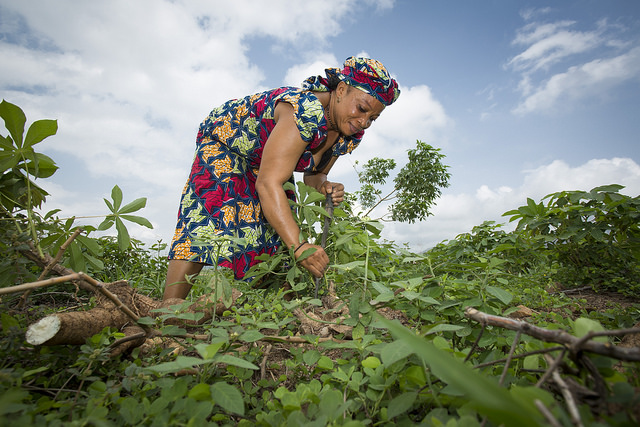The decades since the 1990s have dealt a severe blow to Nigeria’s agricultural industry. What was previously the country’s pride is plagued by insecurity and climate crises. Even as much of the world shifts to mechanised farming, Nigerian farmers are still stuck in obsolete practices.
The COVID-19 pandemic exacerbated these weaknesses, as supply chains shut down, cutting farmers off from seeds, fertilisers and markets.
With food inflation climbing to 40.66%, the government is aiming to fill the gap with billion-naira interventions, along with programmes such as the National Livestock Transformation Plan (NLTP) and the National Agricultural Growth Scheme (NAGS).
Beyond these, more targeted solutions are already in play. Parts of Kaduna and the Middle Belt have deployed a new approach to safety to help farmers reclaim their farmland.
Following violent clashes between farmers and pastoralists, which resulted in damage estimated at over $13.7 billion between 2015 and 2023, local vigilante groups are now working with state security outfits to safeguard farmlands during planting and harvest seasons.
In villages wracked by violence, the sight of patrols on dusty roads has restored a sense of peace and security, inspiring farmers to return to their plots. This model, which has restored production in those areas, can serve as a template to foster more productivity nationwide.
Infrastructure improvements are also making a visible impact. In several northern states, small-scale irrigation projects and solar-powered water pumps are tamping down reliance on rainfall and helping farmers to cultivate crops like onions, rice, and tomatoes all year round.
Rehabilitated roads in Ogun and Kano now connect farms to urban markets, cutting down the time it takes for fresh produce to hit the market. This boost in rural infrastructure further reduces post-harvest losses.
Technology is also helping to bridge old gaps in input supply and market access. Where the pandemic exposed the fragility of fertiliser distribution, digital platforms like ThriveAgric and AFEX are reversing the trend. They connect thousands of farmers directly to subsidised credit and buyers through an e-wallet system to ensure more transparency.
Mobile phones are becoming an essential feature in rural farming. A simple text message lets a farmer in a remote location confirm allocation for fertilisers or receive a microloan.
The growing adoption of machinery is reducing wastage too. In Oyo State, cassava that might have rotted is now being processed into flour by the Special Agro-Industrial Processing Zone (SAPZ). This also creates jobs for the community youths.
These upgrades follow similar initiatives, backed by the African Development Bank, to reduce Nigeria’s $10 billion food import bill and keep more value within local economies.
These solutions show the small signs of progress in the country’s agricultural sector amidst the odds of insecurity and economic shocks. Like seeds, they could grow into a new era of agricultural prosperity for Nigeria.
Since the 1990s, Nigeria's agricultural sector has faced severe challenges due to insecurity, climate crises, and outdated farming practices. The COVID-19 pandemic further highlighted these issues by disrupting supply chains. To tackle rising food inflation, the government has introduced billion-naira interventions and programs like the National Livestock Transformation Plan and the National Agricultural Growth Scheme. Additionally, local solutions such as vigilante groups in Kaduna and the Middle Belt have improved safety, encouraging farmers to return to their farmlands.
Infrastructure improvements, including small-scale irrigation projects and solar-powered water pumps, have reduced reliance on rainfall and increased year-round crop cultivation. In Ogun and Kano, rehabilitated roads connect farms to markets, minimizing post-harvest losses. Technological advancements, like digital platforms and e-wallet systems, are addressing gaps in input supply and market access. Mobile phones are increasingly vital, allowing farmers to access microloans and fertiliser allocations.
The adoption of machinery is reducing wastage and creating jobs. In Oyo State, the Special Agro-Industrial Processing Zone processes cassava into flour, reducing Nigeria's food import bill and encouraging local economic value. These initiatives show progress in Nigeria's agricultural sector, with potential for significant growth despite current challenges.






